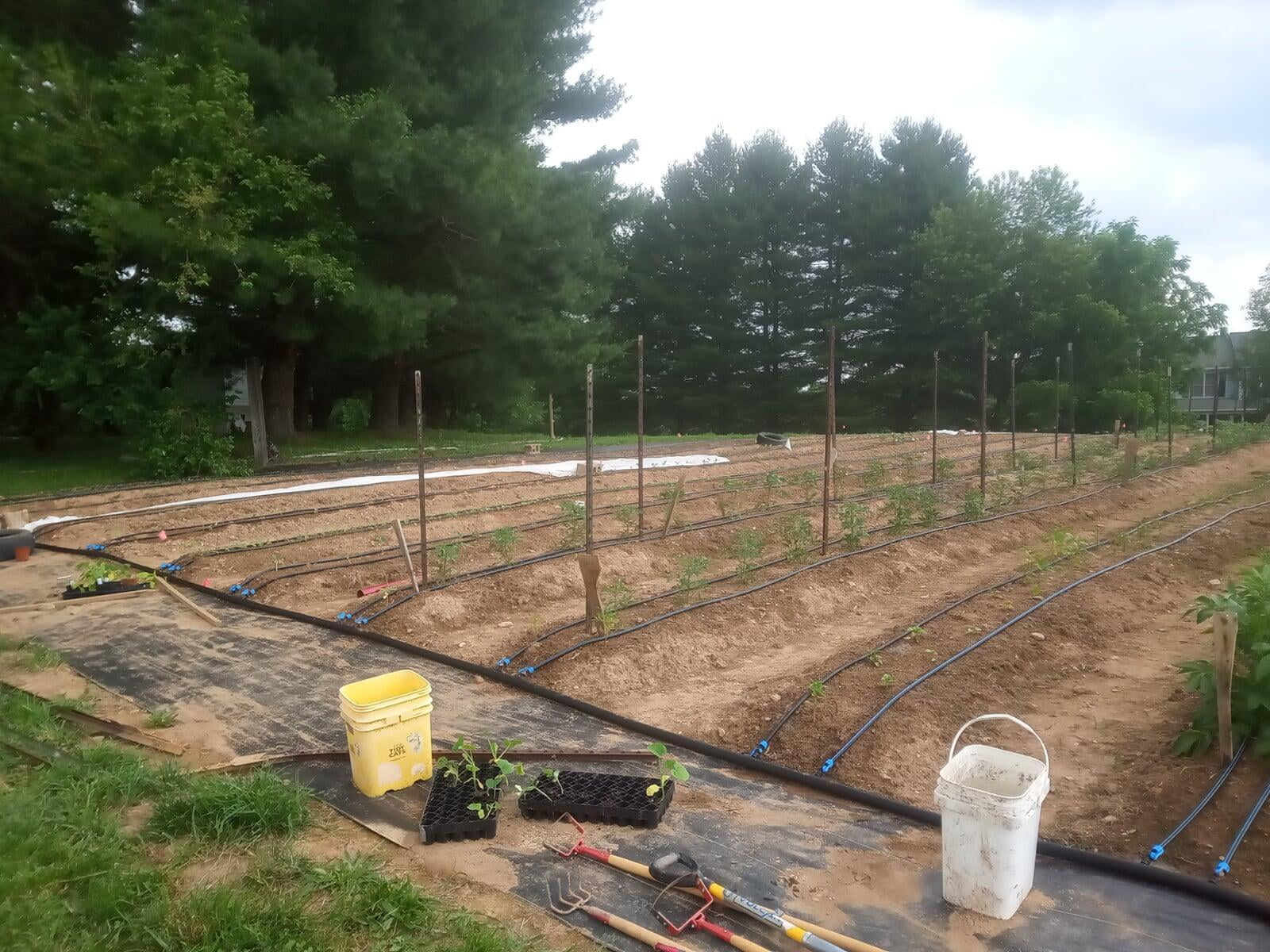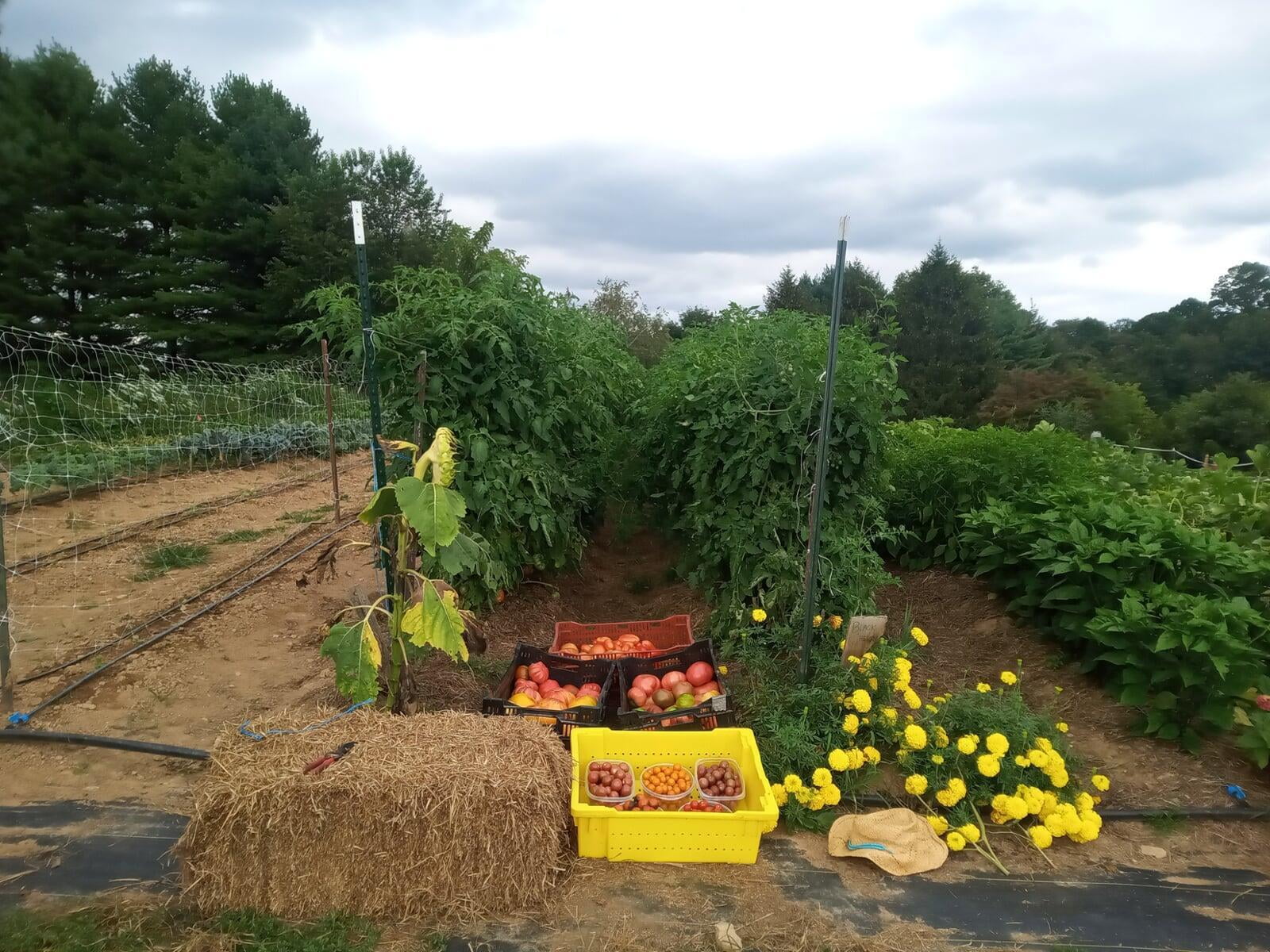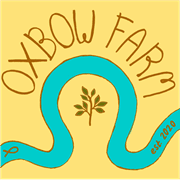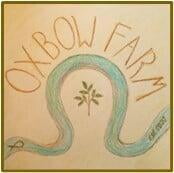About Us
John and I (Julie) are inspired by the Catholic Worker movement and started this farm so we can share the joys and challenges of farm life with others.
I started joking about becoming a farmer when I was in college—I used to say to myself, “I just want to be a farmer!” as if it would be a simpler life. I worked for a non-profit in rural Panama over the summers and was so inspired by the deep connection that the indigenous people there have to the land and by their strong sense of community. My work involved identifying and treating water quality issues, but the more we talked to the locals and did our research, the more obvious it became that the source of the problem was degraded cropland and pasture from increasingly industrialized farms upstream. This inspired me to get my MS in Agroecology at OSU to study more sustainable land management practices, which is where I met John.
After grad school, I worked in organic certification for a few years. I loved the mission and the people but I just couldn't sit at a desk for 40 hours a week so I started looking for farming jobs. The perfect opportunity came up to manage the food pantry farm for a group of Dominican sisters outside of Columbus, Ohio. Shepherd's Corner is a place that beautifully integrated the Catholic faith with ecology, and I loved working with volunteers of all backgrounds and ages.
John got a job teaching economics at Loyola University Maryland, which brought us to the area. He had some experience helping on his host family's farm as a Peace Corps Volunteer in South Africa. After dragging me to Maryland, John was willingly dragged into the chaos of farming and community life. We started looking for land of our own when we got engaged and here we are! We love our neighbors and our church community at Our Lady of Grace parish in Parkton.

What is Integral Ecology?
We do our best to manage our land as a practice of integral ecology. Although Pope Francis does not formally define the term, he notes that “An integral ecology includes taking time to recover a serene harmony with creation, reflecting on our lifestyle and our ideals, and contemplating the Creator who lives among us and surrounds us” (LS 225). Integral comes from the Latin integer which means whole. Ecology comes from “oikos” which means home, and “logos” which means logic. Thus integral ecology is the logic of the whole home, understanding ourselves to be at home on the land. You can read more about this on our blog!

Organic Practices
I used to work at an organic certification agency, so organic practices are very important to us. I know and follow the National Organic Program Standards. Due to our small scale and the fact that we donate a lot of our produce, we are not able to cover the extra cost and extensive record-keeping that organic certification requires at this time.

Crop Rotation and Cover Crops
We plan our plots carefully so we can rotate plant families. By changing the location of plant families each year, we prevent the buildup of pest and disease populations. In conjunction with cover cropping, this practice gives the soil time to rest and rebuild it's nutrient base. We also select crop varieties that have natural disease resistance and are adapted to local conditions.

Integrated Pest Management
We plant wildflowers to attract beneficial insects and do not use synthetic pesticides or herbicides anywhere on our property. Keeping a health, balanced ecosystem minimizes the need for these inputs. When necessary, we do make use of natural fungicides like Regalia, which is a natural plant extract that is harmless to humans, animals, and insects.

Nutrient Cycling
We love compost! We compost our food scraps and vegetable food wastes, so we are sure to return to the soil what we take from it. We monitor the temperature of our animal manure compost to minimize food safety risks.

Animal Care
Our lovely flock of laying hens enjoy a large paddock to roam. They get organic feed, and their diet is supplemented with insects that they forage and scraps of produce from the farm. Other chickens live with our goats and oxen.

Human Flourishing
We love our neighbors, friends, family, and volunteers. We also love that we can share our abundance with those in need. The farm is an amazing place for everyone to come together, reconnect with nature, and renew your spirit.

